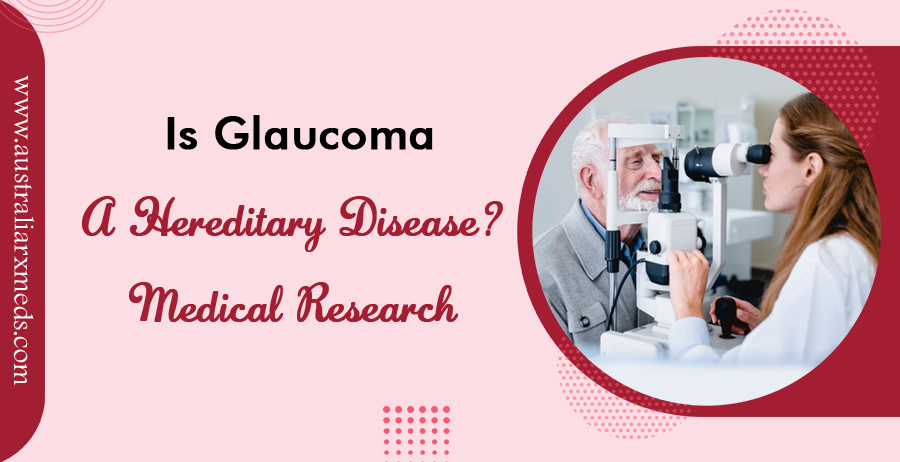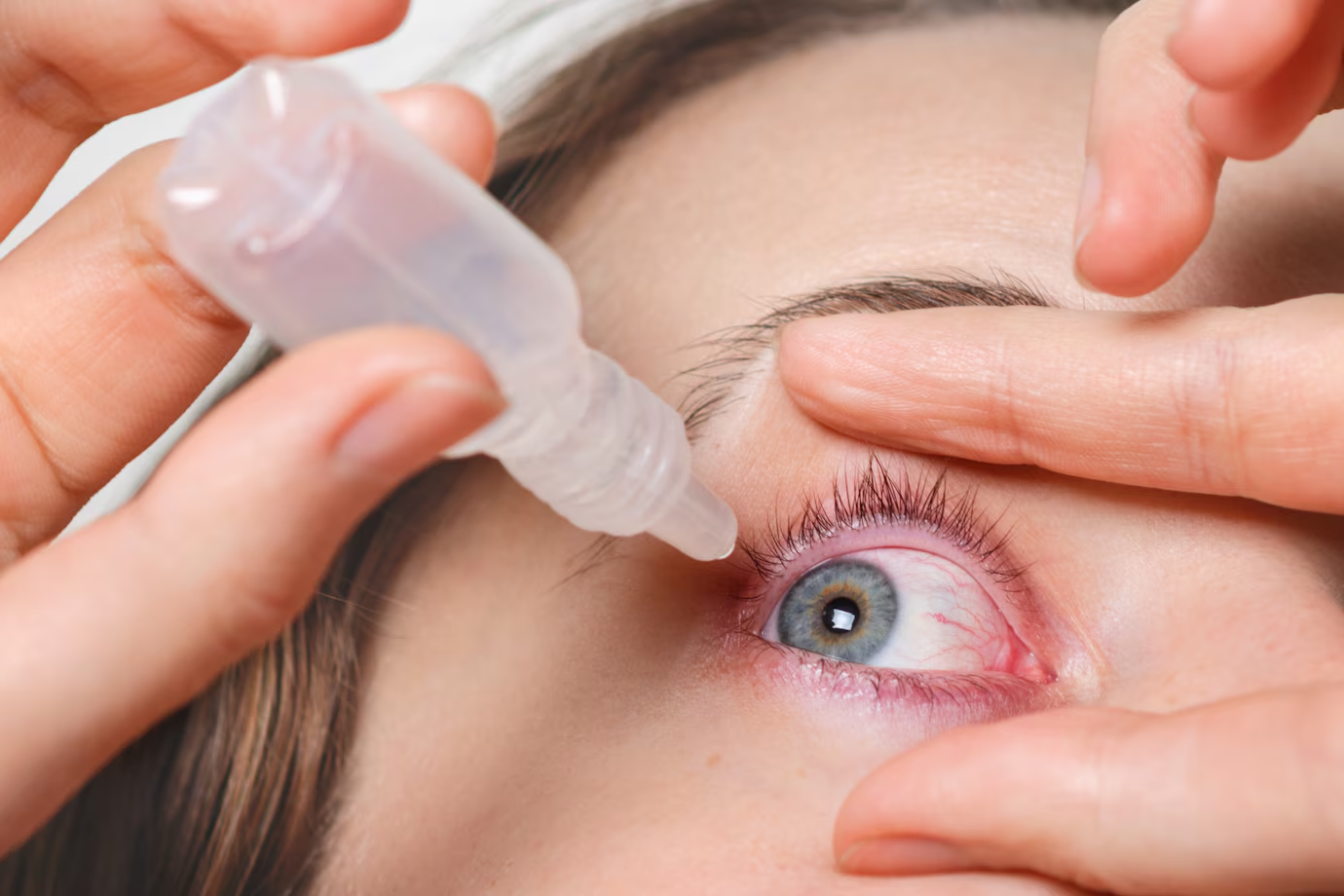Is Glaucoma a Hereditary Disease? Medical Research
By Ezra Allen, Dec-30-2024

Overview
- Multiple forms of eye conditions can have a lasting impact on how you perceive things around you.
- Being essential, we have to protect our eyes in any way.
- Conditions like glaucoma can pose a big threat to this. There are multiple factors associated with a person who might face this. Hereditary linkages are certainly something that we also have to figure out.
- We also have to see some of the potent reasons why a person might face this. We must learn about the opinions of experts who provide vital details to avoid this. Without any further ado, we shall discuss some of the important things related to this condition of the eyes.
What Exactly Happen In Glaucoma?

- The condition involves the person facing acute distress in their eyes. The distress comes in the form of immense pain around the ocular region. It also involves vision-related problems soon. Initially, it starts affecting the peripheral vision. Later on, it can progress into something more serious.
- In this condition, a person will not be able to release fluid from his eyes at times of pressure or any other situation. The fluid that gets released has a certain benefit that we do not all know about.
- It helps to control IOP which helps to maintain optimum pressure in the eyes. It ensures that in stress movements our eyes do not have to face high pressure. This protects different vital parts of our eyes which is critical for our vision.
- As the condition progresses, the fluid does not get released and the pressure builds up further. This results in more distress which results in blindness or at least loss of peripheral vision.
Role of Genetically Factors in Primary Open-Angle Glaucoma
- This is one of the most common forms of glaucoma for patients above 40. The condition involves a person facing intense pressure on their eye care.
- A certain fluid gets released from our eyes between the cornea and iris. It is known as aqueous humor, and it is very similar to water.
- However, in a condition like POAG, this is not happening properly. This results in the building up of the condition causing distress to patients.
- Research by NIH has shown how it might be linked with factors like genetics. There have been specific DNA elements like MYOC and CYP1B1 that trigger this.
- Persons whose parents and siblings might have a history of this have a high risk of facing the condition. Such persons have to be careful in preventing the buildup of pressure on their eyes.
Angle Closure Glaucoma
- This is again a type of glaucoma that many people face. In this condition as well, your peripheral vision will get badly affected. However, it is a bit more complex than open-angle conditions. It is because the path from where the fluid comes out from the cornea and iris is completely blocked in this case.
- In the case of POAG, it remains relatively open. This means that the pressure buildup is comparatively slower. In these times you to be However in this case it certainly is a bit more complex as the path is completely blocked.
- This means that the IOP will increase very rapidly. This sudden increase in pressure can lead to much distress and affect your eyes further.
- It is vital to note that the linkage with genetics for angle closure glaucoma is not very much. However, it still does not mean that genetics does not influence this. It can certainly contribute to other factors that might have led you to face this condition.
Major Risk Factors Other Than Genetics
- We now certainly know how genetics can influence this. Those individuals whose parents might have this have higher risks of developing the condition.
- However, there are certainly other factors that you have to be concerned about. If your parents or anyone close to you does not have this.
- It does not mean you can relax about your eyes. There are different ways of person might face this out of conditions. The first risk factor is ageing.
- As you age, your eyes certainly lose a lot of its power. You can develop a condition like lower, past 40 years of age. In these times you have to be extra careful. You have to ensure that your eyes do not get extreme pressure.
- Certain races of people historically are facing these issues more. For instance, the condition is quite common among African and Hispanic communities.
- NHS studies show how conditions like diabetes and hypertension can lead to this issue. Persons who are facing this sort of condition may have to take Careprost 3 ml solution to manage IOP in their eyes.
FAQs
Does Alcoholism Lead To Glaucoma?
There is no direct relationship between glaucoma and alcohol intake. However, alcoholism can lead to issues like hypertension and diabetes. These issues do have the ability to trigger glaucoma. Hence it is fair to say it can indirectly influence it.
Does Glaucoma Lead To Blindness?
If you have been diagnosed earlier, you can start early treatment with Lumigan 0.01% to manage it. Complete blindness does not happen if you treat it properly. However, ignoring the signs can lead to major vision issues.
What Is The Best Way Of Avoiding Glaucoma?
The best thing you can do is to avoid extreme build-up pressure on your eyes. If you work on laptops or digital screens, take frequent breaks as well.
Keep your eyes closed for 15 to 20 seconds which will also help to reduce the pressure. Sleep adequately in the nighttime as well to further protect your eyes.
Does Age Increase The Risk Of Glaucoma?
It does. Persons become more susceptible to I-related conditions which certainly include glaucoma as well. These issues are seen mostly for people above 40 years of age.
How To Avoid The Genetic Predisposition Of Glaucoma?
You have to be extra careful if you have someone in your family who already faces this. Studies indicate that there is 9 times more risk for such persons of developing acute eye conditions.
How to Minimise the Side Effects of Eye Solutions?
If you get your eye solutions from reputed portals like Australiarxmeds you can get authentic options. This reduces the chances of major side effects that can affect your eyes.
Does Sunglasses Protect From Glaucoma?
You can certainly wear sunglasses during daytime to minimize the IOP. Those sensitive to developing the condition can benefit from this.





